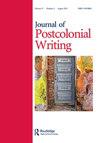出版商对多样性的看法:与赫敏·汤普森的对话
IF 0.4
3区 文学
0 LITERATURE
引用次数: 0
摘要
在这段对话中,哈米什·汉密尔顿的编辑总监赫敏·汤普森讨论了一本书到达购买大众的各个阶段。本文考虑了代理人的角色以及文学和体裁出版商的不同期望。“黑人的命也是命”运动在人们对黑人写作兴趣高涨的过程中发挥了重要作用,汤普森在欢迎这一发展的同时,也承认不要根据作家的身份将他们分类的重要性。宗教差异问题很少出现在编辑讨论中,这可能是收到的各种意见书的结果,但汤普森承认,这也可能表明了一种世俗规范,一种白人中产阶级规范仍然统治着这个行业的作品。采访结束时,他谈到了一些新的发展,比如社交媒体和播客,以及一些文学节依靠大牌作家吸引观众的趋势,从而进一步巩固了民族和文化规范。本文章由计算机程序翻译,如有差异,请以英文原文为准。
A publisher’s perspective on diversity: A conversation with Hermione Thompson
ABSTRACT In this conversation, Hamish Hamilton’s editorial director Hermione Thompson discusses the stages by which a book reaches the buying public. The role of agents and the different expectations of literary and genre-focused publishers are considered. The Black Lives Matter movement has been instrumental in the upsurge of interest in black writing and, while welcoming this development, Thompson acknowledges the importance of not pigeonholing writers according to their identity. That matters of religious difference seldom occur in editorial discussions may be a result of the kinds of submissions received, but Thompson acknowledges that it may also indicate a secular norm, of a piece with the white middle-class norms still governing the industry. The interview ends with a consideration of new developments, such as social media and podcasting, and the tendency in some literary festivals to rely on big-name authors to pull in a crowd, thereby further entrenching ethnic and cultural norms.
求助全文
通过发布文献求助,成功后即可免费获取论文全文。
去求助
来源期刊

Journal of Postcolonial Writing
LITERATURE-
CiteScore
0.80
自引率
0.00%
发文量
73
期刊介绍:
The Journal of Postcolonial Writing is an academic journal devoted to the study of literary and cultural texts produced in various postcolonial locations around the world. It explores the interface between postcolonial writing, postcolonial and related critical theories, and the economic, political and cultural forces that shape contemporary global developments. In addition to criticism focused on literary fiction, drama and poetry, we publish theoretically-informed articles on a variety of genres and media, including film, performance and other cultural practices, which address issues of relevance to postcolonial studies. In particular we seek to promote diasporic voices, as well as creative and critical texts from various national or global margins.
 求助内容:
求助内容: 应助结果提醒方式:
应助结果提醒方式:


